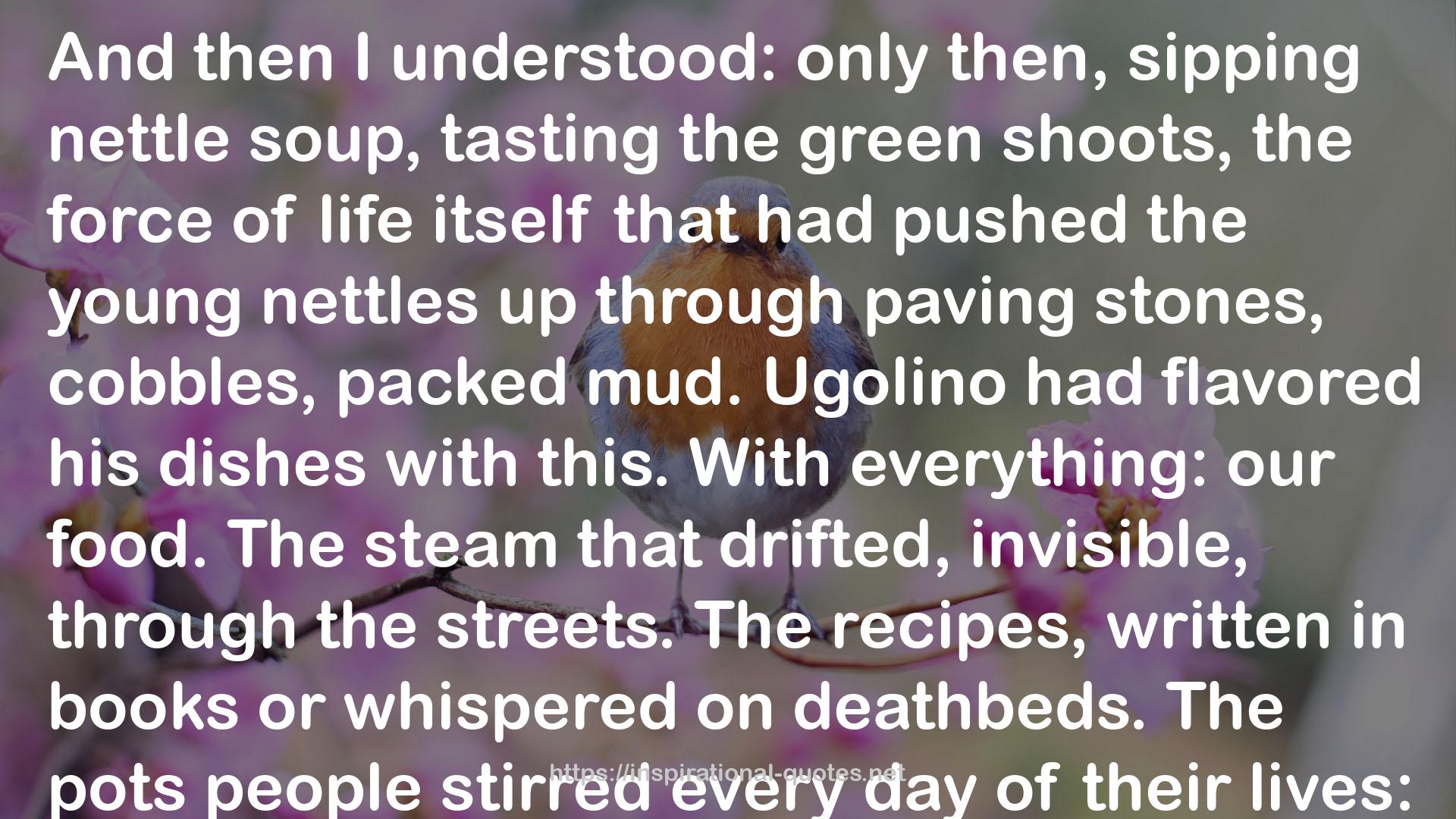" And then I understood: only then, sipping nettle soup, tasting the green shoots, the force of life itself that had pushed the young nettles up through paving stones, cobbles, packed mud. Ugolino had flavored his dishes with this. With everything: our food. The steam that drifted, invisible, through the streets. The recipes, written in books or whispered on deathbeds. The pots people stirred every day of their lives: tripe, ribollita, peposo, spezzatino, bollito. Making circles with a spoon, painting suns and moons and stars in broth, in battuta. Writing, even those who don't know their letters, a lifelong song of love.
Tessina dipped her spoon, sipped, dipped again. I would never taste what she was tasting: the alchemy of the soil, the ants which had wandered across the leaves as they pushed up towards the sun; salt and pepper, nettles; or just soup: good, ordinary soup.
And I don't know what she was tasting now, as the great dome of the cathedral turns a deeper red, as she takes the peach from my hand and steals a bite. Does she taste the same sweetness I do? The vinegar pinpricks of wasps' feet, the amber, oozing in golden beads, fading into warm brown, as brown as Maestro Brunelleshi's tiles? I don't know now; I didn't then. But there was one thing we both tasted in that good, plain soup, though I would never have found it on my tongue, not as long as I lived. It had no flavor, but it was there: given by the slow dance of the spoon and the hand which held it. And it was love. "
― Philip Kazan , Appetite
